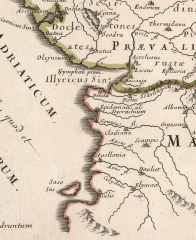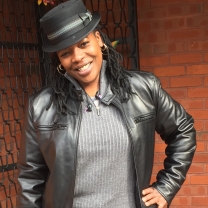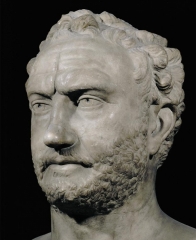 / We, Too, Sing America. Or, Do We?
Subscribe
/ We, Too, Sing America. Or, Do We?
Subscribe

The morning of September 25, 2017, Donald Trump took to Twitter to carry on a feud, entirely of his own making, with the NFL. More accurately, his beef is with black players who are taking a knee during the national anthem to condemn institutional racism. With their protest, they have reinvigorated a controversy begun in August 2016, when then San Francisco 49ers quarterback Colin Kaepernick initiated this “movement” after a spate of police brutality against unarmed African Americans that resulted in several deaths.
Within fourteen minutes, Trump fired off three tweets on the subject, the last of which stated: “The issue of kneeling has nothing to do with race…”
Presumably, Trump meant his opposition to the players’ protests has nothing to do with race. No serious minded person can accept this. Having shown no prior interest, the president first sounded off about the NFL at a campaign rally in Alabama in a transparent attempt to play to his base, a good number of which are—as reflected by various polls—“overt racists.” Displaying a lack of decorum completely unbefitting his office, the president referred to the players taking a knee—all of whom have been African Americans, save Cleveland Browns tight end Seth DeValve—as sons of bitches. Understanding that Trump was signifyin’ on her black son, Teresa Kaepernick tweeted: “Guess that makes me a proud bitch!”
You’ll not convince me that Trump cares about these protests beyond their “dog whistle” utility; nevertheless, his opposition to them has everything to do with race, and racism. And he’s not alone. A recent PBS NewsHour/Marist poll indicates that nearly half of U.S. adults object to NFL players taking a knee, or even locking arms, during the anthem.
Many who would have black football players sit down and shut up—or, in this case, stand up and sing—object to them messing with tradition and bringing politics into the game. Except, only since 2009 have NFL players been required to be present during the national anthem for primetime games; previously, they sat out “The Star Spangled Banner” in the locker room. Moreover, between 2011 and 2014, the Department of Defense paid some NFL teams to participate in flag ceremonies—a practice brought to end after Senators John McCain and Jeff Flake issued an oversight report that charged “unsuspecting audience members [had become] the subjects of [taxpayer-funded] marketing campaigns.” The point? Patriotic performances on behalf of NFL teams are neither time-honored tradition nor unadulterated by external influences.
The most common criticism levied at the athletes in their protest is that they are being disrespectful. I’ll not use up space here to rehash the debate about the appropriateness of players taking a knee as a form of direct action, an act former Green Beret Nate Boyer suggested to Kaepernick as “a sign of reverence.” Also, I certainly will not deny anyone their interpretation. That said, the scolding of the black players in their protest signals and perpetuates African Americans’ unbelonging. When fans, politicians, and commentators deny the players’ right to protest on the grounds that their protest is disrespectful to the anthem, the flag, the armed forces, and first responders, they refute African Americans’ ownership of all these national symbols and institutions and their right to interrogate them as equal members of the body politic.
By taking a knee, black NFL players insist that people of color have equal stake in this nation—its heritage, culture, strength, and successes—at a time when multiple federal efforts seek to repudiate or revoke their claim. As I write this, the legal battle continues over a “travel ban” that undeniably targets Muslims; DACA and the fate of the Dreamers hangs in the balance; and white nationalism has found a home at the White House with personnel, past and present, like Steve Bannon, Stephen Miller, Sebastian Gorka, and, most disturbingly, the president himself, who insists white supremacists include “fine people.”
There’s perhaps no better evidence of the unbelonging of black and brown Americans than the Trump administration’s response to Puerto Rico’s devastation by Hurricane Maria last month. The morning Trump tweeted that “the issue of kneeling has nothing to do with race,” over three million Puerto Ricans had spent their fourth night in darkness after the Category 4 storm destroyed the island’s power grid. In addition to electricity, they wanted for food, fuel, shelter, and potable water (incidentally, they still do). FEMA and Trump finally arrived on the island a full two weeks after the hurricane struck. In the interim, the president disparaged the ability of Puerto Ricans to handle disaster and blamed them for their predicament – all via tweet, of course. During his five hours on the island, Trump held a press conference during which he minimized the loss of life and lamented the toll of the island’s recovery needs on the national budget; he then visited a local church where he chucked rolls of paper towels at hurricane victims as if throwing peanuts to animals at the zoo. One wonders if our president is among the approximately 54 percent of U.S. adults who don’t understand that Puerto Ricans are citizens of the United States – in addition to human beings.
These circumstances motivate the black NFL players, who are using their enviable platform to assert the national belonging and personhood of people of color. To their critics I say: if we don’t want politics mixing with our sports entertainment, then we’d do well to keep the two most potent national symbols—the flag and the national anthem—out of the game. The ceremonial recognition of these democratic symbols during widely televised, primetime football games presents a prime opportunity to point to systemic oppression of U.S. citizens. Watching from the metaphorical sidelines, I question if it’s the black players asserting their politics that is objectionable; or, that they are asserting their humanity, in an arena where their value has only ever been measured in yardage gained or damage done. As a woman of color, I can only hope more players take a knee. After all, we’re not talking about Major League Baseball with its sixty or so black players, or NASCAR with its one black driver. If the NFL’s black players ban together? Talk about damage done.
I’m generally loath to invoke Martin Luther King, Jr. as the voice of authority on issues of social justice (because so many miscomprehend the roots of that authority and twist the message); however, his is the black voice most likely respected among white conservatives and moderates offended by the football players’ social change effort. Sitting in a Birmingham jail in 1963, King wrote: “We would present our very [black] bodies as a means of laying our case before the conscience of the…national community.” Through peaceful protest, black NFL athletes seek, as King explained, “to create such a crisis and foster such a tension that a community … is forced to confront the issue.” Forced to confront the issue, this week the NFL ruled it will not restrict players from taking a knee and committed to formally endorsing criminal justice reform legislation. Albeit small, this is progress. Well played, Kaepernick. Well played.








